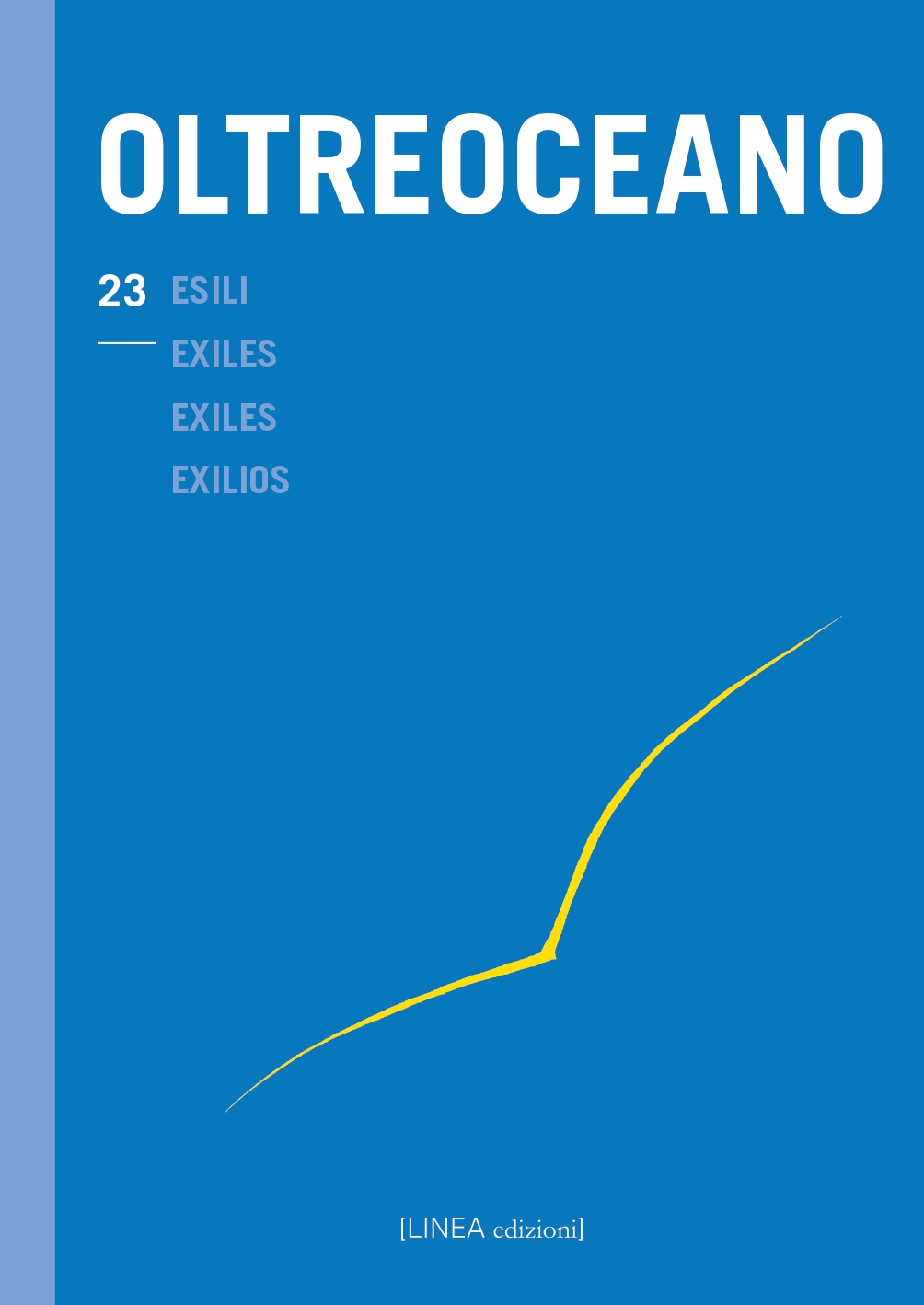A Fool’s Crusade. Exile and Memory in Viet Thanh Nguyen’s “War Years”
DOI:
https://doi.org/10.53154/Oltreoceano100Keywords:
Viet Thanh Nguyen, “War Years”, The Refugees, The Sympathizer, Vietnamese American literatureAbstract
The aim of this essay is to reconstruct in detail the historical events underlying Viet Thanh Nguyen’s short story “War Years” from the collection The Refugees (2017) and his debut novel The Sympathizer (2015). “War Years” gives a fictionalized version of the Homeland Restoration movement (Y.T Nguyen 2018), a wide array of anticommunist fronts born out of the ashes of the South Vietnamese military in the wake of the 1975 defeat. These fronts were responsible for various unsuccessful attempts to infiltrate the motherland with the aim of overthrowing Hanoi’s rule during the eighties. Throughout the essay, the emphasis will be on the dual narrative strategy (realism vs. satire) via which the author fictionalizes the story of the Homeland Restoration movement across the two texts. While The Sympathizer reframes this little-known story as a quasi-surreal narrative, “War Years” investigates the impact of the Homeland Restoration movement on the daily life of Vietnamese refugees in Reagan-era San José thus giving agency to characters and actors who have been traditionally excluded from canonical Vietnam War narratives.
Downloads
References
Andrei, C. (2016): Simplement aimer, dit-elle. Images de la femme dans les autofictions de Felicia Mihali. La Revue Roumaine d’Études Francophones, 8, pp. 30-48.
Athlan, A. (2014): La psychologie sur la voie de l’exil. Le journal des psychologies, 2, 315, pp. 59-63.
Eiben, I. N. (2011): L’élément autobiographique et sa fictionnalisation dans le roman Dina de Felicia Mihali. In K-D Ertler, M. Löschnigg, & Y. Völkl (Éds.), Cultural Constructions of Migration in Canada/ Constructions culturelles de la migration au Canada (pp. 155-164). Frankfurt: Peter Lang.
Fins, A. G. (2017): L’exil intime qui nous fonde. Carnets, Deuxième série – 10/2017. Tiré de http://journals.openedition.org/ carnets/2255 (Consulté le 27/06/2024).
Gyurcsik, M. (2004): La neige, la même et autre, Essai sur le roman québécois contemporain. Timișoara: Universităţii de Vest.
Ionescu, M. (2014a): De l’endurance à la résilience: les romans de Felicia Mihali. Dialogues francophones, 19, pp. 21-31.
Ionescu, M. (2023): (S)’Écrire dans l’entre-deux. Récits de femmes d’ici et d’ailleurs. Lausanne, Berlin, Bruxelles, Chennai, New York, Oxford: Peter Lang.
Jouve, V. (2001): L’effet-personnage dans le roman. Paris: PUF écriture.
Laferrière, D. (2009): L’énigme du retour. Montréal: Boréal.
Mihali, F. (2005): La reine et le soldat. Montréal: XYZ.
Mihali, F. (2006, décembre): Le pays mère. Terra Nova Magazine. Tiré de www.terranovamagazine.ca (Consulté le 14/06/ 2010).
Mihali, F. (2008): Dina. Montréal: XYZ.
Mihali, F. (2022): La bigame. Montréal: Hashtag.
Nouss, A. (2015): La condition de l’exilé. Penser les migrations contemporaines. Paris: Maison des sciences de l’homme.
Paterson, J. (2009, Printemps): Le sujet en mouvement: Postmoderne, migrant et transnational. NEF, Dossier Avatars du sujet, 24, 1, pp. 10-18.
Pavel, T. (2003): Fiction et perplexité morale ‒ XXVe Conférence Marc-Bloch, 10 juin 2003. Tiré de https://www.ehess.fr/sites/default/files/pagedebase/fichiers/thomas_pavel.pdf (Consulté le 10/05/2024).
Pavel, T. (2017): Univers de la fiction, 1988. Paris: Seuil.
Rushdie, S. (1993): Patries imaginaires. In S. Rushdie, Patries imaginaires. Essais et critiques (pp. 19-32). Paris: Christian Bourgois.
Stitou, R. (Automne 2006): L’exil comme “épreuve de l’étranger”. Pour une nouvelle clinique du déplacement. Filigrane, 15, 2, pp. 51-67.
Downloads
Published
How to Cite
Issue
Section
License

This work is licensed under a Creative Commons Attribution-NonCommercial-ShareAlike 4.0 International License.
The authors undertake to comply with the following conditions, which are considered accepted at the time of submission of their contributions.
The sending of a text implies that it is unpublished and not submitted to be published elsewhere.
1. If accepted, the author shall confer on the publisher the right to publish and distribute it both in paper form and in the online electronic edition. The published articles will be downloadable and made available in open access.
2. Provided that it correctly indicates that the first publication took place in the journal Oltreoceano. Rivista sulle migrazioni the author has the right to: a) reproduce the article in separate extracts or collected in a volume; b) publish the article on their personal website or teaching site provided that these sites are of a non-commercial nature; c) deposit the article in online archives of a non-commercial nature, linked to the institution they belong to or as part of projects for the non-commercial dissemination and open access of scientific works.
The use of contributions by third parties, for commercial or otherwise unauthorized purposes, is not allowed. The publisher declines all responsibility for the unauthorized use of the material published in the journal.












